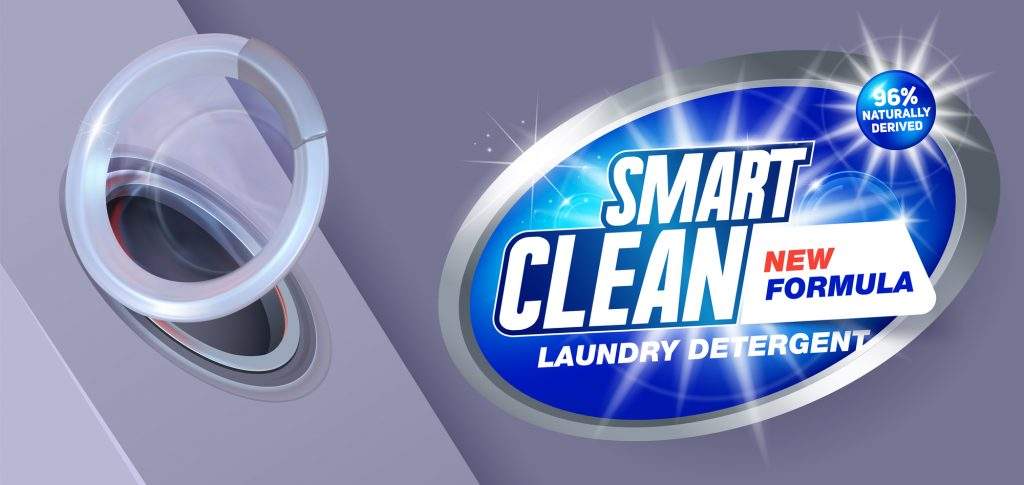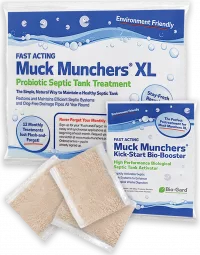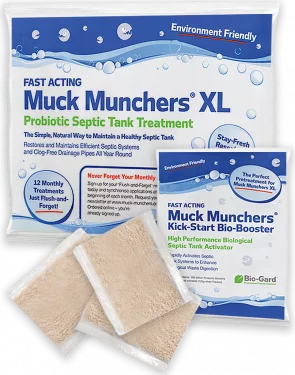What are the Best Detergents for Septic Tanks?
About 1 million households in the UK use a septic system as the means of processing waste-water and sewage disposal however, we are frequently asked what are the best detergents for septic tanks?

There is much discussion amongst septic tank owners about the types of laundry and dishwashing products to use with their washing machines and dishwashers. So no wonder that we are frequently asked for advice on this topic.

This article hasn’t been written to promote or recommend the best detergents for septic tanks including any particular brand or make of laundry detergent for septic tank owners to buy. Its purpose is to educate and help you to make wise decisions when researching the best laundry detergents for you and your septic tank.
Powder Laundry Detergent v Liquid Laundry Detergent
Quite simply, powdered laundry detergents are more likely to form clogs and sludge sediment in a septic system, reducing the rate of bacterial digestion and potentially blocking drains too. Inexpensive powdered detergents may contain excessive amounts of filler or carrier. The best solution is to use a liquid laundry detergent or pods that contain no fillers which could harm a septic system.
Non Bio Vs Bio Laundry Detergents
The choice is yours. There’s really not a lot of difference. Bio products have the edge – just – simply because they contain enzymes, similar to those produced by Muck Munchers.
These enzymes break down complex organic molecules, but unlike microbes they do not digest them, but simply move them on, further down the drain. Of course, the other benefit of Bio products is they help in removing fluff on clothes in the wash. The downside – some people are allergic to them.
Avoid Phosphate Detergents – Always Read the Label
The most important thing to note is that the detergents containing phosphates are not exactly environmentally friendly. The good news is that phosphates are no longer present in most major detergent brands.
The environmental issue with using phosphate-based detergents is that too much phosphorus released into water causes ‘algae bloom’, where plant life in lakes, ponds, or streams overgrows and limits the amount of oxygen animal and plant life receives. Essentially, plant organisms in the water are over-fed and grow faster than the water can naturally regulate itself.
Antibacterial Detergents and Sanitisers for Septic Tanks
By definition they destroy bacteria. That’s not good for septic tanks and there is a growing body of evidence that good bacteria on our skin is a contributor to overall personal health.
Mouthwashes, while antibacterial, in our opinion may be a necessary essential to good oral hygiene. Don’t be concerned, Muck Munchers has been developed assuming that with modern living, sometimes you just have to rinse or flush some antibacterial products.
Oxy Laundry Products and Bleaches
If a product is described as ‘Oxy’ it’s almost certain to be based on oxygen producing ingredients, such as Sodium Percarbonate, which means that they are microbe friendly and can even benefit septic tanks. The same goes for Hydrogen Peroxide based bleach products that are effective laundry additives and excellent general sanitisers.
How Can You Promote a Healthy Septic Tank?
Choosing a liquid laundry detergent or liquid pods are recommended over powder laundry detergents which have the potential for clogs and increased sludge sediment in your septic tank and bio laundry detergents are an improvement on non-biological laundry detergents due to the enzymes that they contain.
However, if you’re still wondering if there is anything further you can do to support a healthy septic tank we recommend regularly adding Muck Munchers bacterial treatment to ensure healthy, efficient septic tank systems and clog-free drains and soakaways. In addition to ensuring that you fully understand your septic tank system and what not to flush into it.










